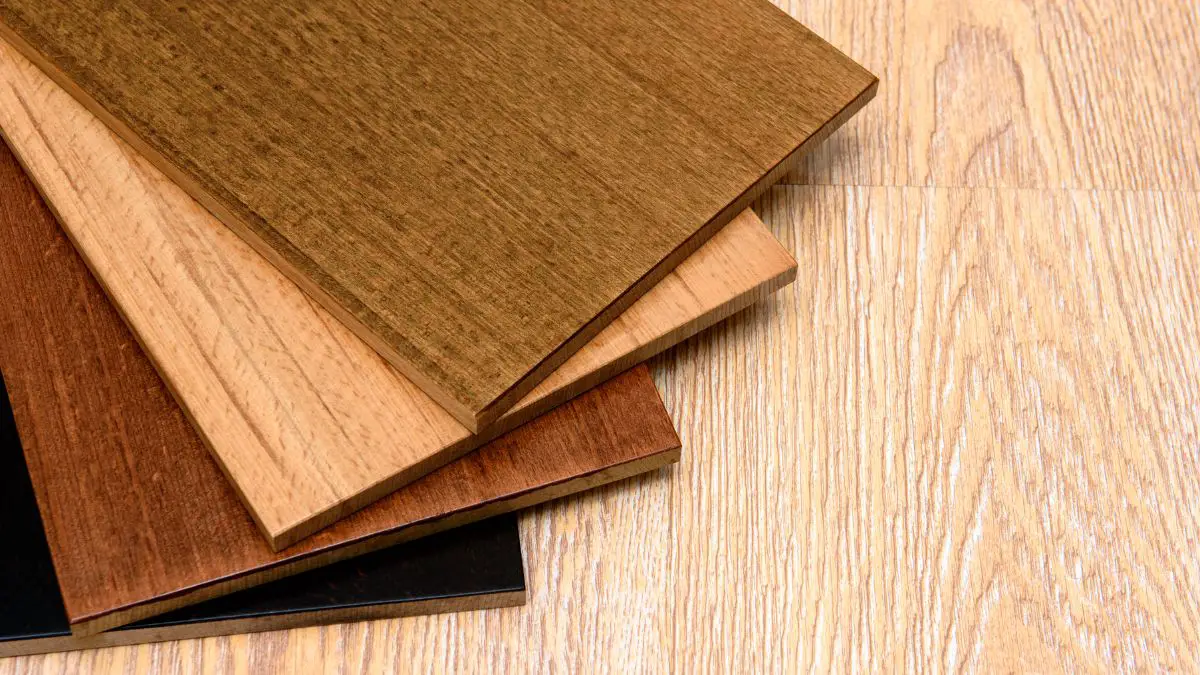There’s nothing quite like that feeling of satisfaction when you finally finish a home project, especially one as big as selecting and installing new flooring. You may have narrowed it down to 8mm or 12mm, but with so many factors to consider, making a final decision can be challenging.
So if you’ve been debating between 8mm vs. 12mm laminate floor options or want to gain some insight into their differences, read on!
What is Laminate Thickness?
Laminate thickness measures how thick each plank of laminate flooring is. This measurement reflects the combined wear layer, core board, and backing material.
The thicker the planks, usually the more durable and long-lasting they are. 8mm and 12mm are two standard thicknesses, each with pros and cons.
How Thick Should Laminate Flooring Be?
The best thickness for a laminate floor depends on how much foot traffic and activity your room will experience.
If it’sit’s a low-traffic area such as a bedroom, 8mm should be sufficient.
But if you’re looking for something more durable that can withstand high-traffic areas like living rooms or kitchens, 12mm is likely a better choice.
The Difference Between 8mm vs. 12mm Laminate Flooring
Sound Absorption
When considering the level of sound absorption between 8mm and 12mm laminate flooring, 12mm laminate provides a better option.
This is due to the extra thickness of a more high-density fiberboard (HDF) core, which helps muffle noise from foot traffic or furniture being moved around.
Durability
The added thickness of 12mm laminate flooring helps to make it more durable than 8mm laminate.
This makes it better suited for areas with higher foot traffic or furniture being moved around regularly since the extra layer will help to protect the floor from wear and tear.
8mm laminate is thinner and may not be as durable, so it is best to reserve this option for areas that will only get a little use.
Design
Regarding design, there isn’tisn’t a huge difference between 8mm vs. 12mm laminate flooring.
Both are available in various colors, textures, and styles, so it comes down to personal preference.
8mm laminate might be the best choice for a more traditional look, while 12mm laminate could add extra depth and dimension to any room.
Cost
The cost between 8mm versus 12mm laminate flooring can vary depending on the type of laminate you are looking for.
Generally speaking, 12mm laminate will be more expensive than 8mm as it is thicker and more durable.
However, 8mm laminate may still provide great value if you’re looking for a budget-friendly option that is still good quality.
Which One Is Right For You?
Ultimately, the type of laminate flooring best for you will depend on your individual needs and preferences.
8mm laminate flooring can be a great option if you’re looking for something affordable and classic-looking, while 12mm laminate might be better suited for areas with higher foot traffic or those wanting to add some extra depth to the room.
Both 8mm and 12mm laminate flooring options can provide a beautiful finish to any space.
Related Questions
Is 8mm a good thickness for laminate flooring?
When choosing laminate flooring, the thickness of your boards should not be less than 8mm. However, if your budget is tight and you have a flat, clean subfloor below, you can go with 7mm boards.
It’s important to remember that any bumps or lumps in the subfloor will appear on the laminate’slaminate’s surface, so make sure it’s smooth and ready for installation.
Is 12mm laminate too thick?
12mm laminate is not too thick. The durability of the flooring depends on the quality of the wear layer, which determines how long it will last.
Even though 12mm laminate may be more expensive, it has better resistance to damage from objects dropped on it than a thinner board would have. Therefore, it can provide stronger protection for your floor.
What is the benefit of 12mm laminate flooring?
12mm laminate flooring provides superior comfort and sound absorption compared to thinner laminates.
It is perfect for busy areas of the home because it absorbs sounds rather than allowing them to reverberate throughout the house.
Additionally, 12mm laminate can support more weight and is more impact-resistant than other types of laminate, making it a great choice if you’re looking for a durable flooring option.
Is it better to have thicker laminate flooring?
Thicker laminate flooring will provide more stability and strength, making it a great choice if your budget allows it. It can also help reduce noise levels, making it perfect for busy areas of the home.
Additionally, if your subfloor is old or creaky, thicker laminate can provide an extra layer of support and protection.
Ultimately, the choice will depend on your specific needs and budget, but thicker laminate is worth considering.
Does 12mm laminate need underlay?
Yes, 12mm laminate will require the underlayment to be installed properly. Underlayment provides stability and support for the flooring, reduces noise levels, and helps distribute weight evenly across your subfloor.
It also supports the locking systems between planks to give you the sturdiest possible installation.
What thickness of the laminate floor is best?
The best thickness of laminate flooring for a given area depends on the environment and level of foot traffic in the space.
An 8-12mm laminate is usually recommended for areas with regular foot traffic as it provides the most stability and resilience to wear and tear.
However, if your space experiences high levels of activity or heavy furniture, opt for the thicker 12mm option, as it can provide better durability in these cases.
Final Thoughts
8mm and 12mm laminate flooring have advantages and disadvantages. 8mm is a more budget-friendly option that may be suitable for areas with light foot traffic, while 12mm provides superior sound absorption, durability, and strength, making it better suited for busy homes or those looking for extra support.

